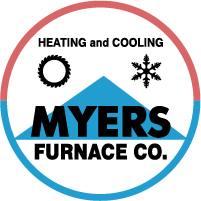
We spend lots of time in our homes. In fact, the Environmental Protection Agency (EPA) has estimated being within a building accounts for 90% of our schedule. However, the EPA also has determined your indoor air can be three to five times more polluted than outside your home.
That’s because our houses are tightly sealed to increase energy efficiency. While this is good for your energy bills, it’s not so good if you’re amid the 40% of the population with respiratory allergies.
When outside ventilation is insufficient, pollutants such as dust and volatile organic compounds (VOCs) may get captured. Consequently, these pollutants may worsen your allergies.
You can improve your indoor air quality with crisp air and usual dusting and vacuuming. But if you’re still having issues with symptoms during the time you’re at your house, an air purifier may be able to help.
While it can’t get rid of pollutants that have settled on your couch or flooring, it could help freshen the air moving throughout your home.
And air purification has also been scientifically confirmed to help lower some allergic symptoms, according to the American College of Allergy, Asthma and Immunology. It can also be appropriate if you or a loved one has lung trouble, including emphysema or COPD.
There are two models, a portable air purifier or a whole-home air purifier. We’ll examine the differences so you can figure out what’s right for your residence.
Whole-House Air Purifier vs. Portable Air Purifiers
A portable air purifier is for one room. A whole-house air purifier accompanies your HVAC unit to clean your entire residence. Some models can clean independent when your home comfort system isn’t running.
What’s the Best Air Purifier for Allergies?
Go after a purifier with a High Efficiency Particulate Air (HEPA) filter. HEPA filters are placed in hospitals and offer the greatest filtration you can find, as they eliminate 99.97% of particles in the air.
HEPA filters are even more useful when used with an ultraviolet (UV) germicidal light. This powerful combination can eliminate dust, dander, pollen and mold, all of which are standard allergens. For the greatest in air purification, evaluate a unit that also has a carbon-based filter to decrease household smells.
Avoid using an air purifier that generates ozone, which is the top ingredient in smog. The EPA warns ozone may aggravate respiratory problems, even when released at small settings.
The Allergy and Asthma Foundation of America has compiled a listing of questions to ask when buying an air purifier.
- What can this purifier take out from the air? What doesn’t it take out?
- What’s its clean air delivery rate? (A bigger number means air will be purified more rapidly.)
- How frequently does the filter or UV bulb need to be replaced]? Can I finish that by myself?
- How much do spare filters or bulbs cost?
How to Lessen Seasonal Allergy Symptoms
Want to get the {top|most excellent|best] outcome from your new air purification unit? The Mayo Clinic suggests taking other measures to decrease your exposure to things that can trigger seasonal allergies.
- Stay indoors and keep windows and doors sealed when pollen counts are high.
- Have other family members trim the lawn or pull weeds, since these jobs can irritate symptoms. If you must do this work yourself, you might want to consider wearing a pollen mask. You should also shower immediately and change your clothes once you’re done.
- Avoid hanging laundry outside.
- Use air conditioning while indoors or while driving. Consider using a high efficiency air filter in your home’s home comfort unit.
- Even out your residence’s humidity levels with a whole-house dehumidifier.
- Hardwood, tile or linoleum are the best flooring materials for reducing indoor allergens. If your home has carpet, add a HEPA filter on your vacuum cleaner.
Let Our Professionals Handle Your Indoor Air Quality Necessities
Prepared to move forward with installing a whole-house air purifier? Give our specialists a call at 816-249-1619 or contact us online to request an appointment. We’ll help you locate the ideal unit for your family and budget.
